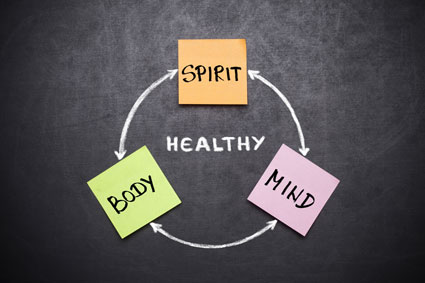How to Increase Personal Productivity In Order to Increase Happiness
Life in the 21st century is fast-paced and hectic. Computers, which were supposed to give us more leisure time, have actually created more work in many ways (as well as consuming all our free time!). Adults work longer hours, and children have more activities and educational demands than ever. Everyone is stressed; no one has time for "one more thing," even if it's something "important." How can anyone be expected to do everything that's on their list in the first place, let alone add to that list?
"Triage" Your Life
Triage is used primarily as a medical term for sorting groups of injured people in order of urgent need, or who would receive the greatest benefit from immediate treatment. Triaging doesn't just work for massive medical emergencies, however – you can triage the activities and obligations in your life, as well.
First, understand if everything is an emergency, nothing is an emergency. In other words, if the same weight is given to all tasks and issues, everything blurs together in a mass of "too much stuff to do." Appointments are missed, important papers are lost, family members are late for work or school, and the house never gets cleaned because everything must be done now. It's all too confusing and overwhelming!
Enter the triage, your best defense against mayhem and overload! It is a simple process, although your first efforts may take some time, since this will likely be a new process for you, and it may require a few tries before you feel your activities and responsibilities are triaged properly.
The three triage levels are as follows:
Level 1 – Most urgent. These are tasks or obligations that are time-sensitive or of supreme importance.
Level 2 – Things of intermediate importance. These tasks are not as time-sensitive or vital as those on Level 1, yet there is some urgency to them.
Level 3 – Least urgent. These are either "little things" that need doing, or multi-phase projects that can be worked on intermittently. (We will give examples of all three levels below.)
Particularly if you have a long list, you may be tempted to add more levels. Not a good idea! There is a good reason for only using three categories. Think of a toddler, being given a choice. How many choices are usually presented? Two – this or that. "You may have your cookie now, or you may have it after your nap." As the child gets older, they are often given three choices: this, that, or the other. Why is this? Because the human brain is really good at choosing when two or three choices are presented, but it becomes confused and somewhat overloaded as choices increase. So, having 5,000 TV channels to choose from, or 1,000 possible soda combinations at the local theater, is really not helpful! Remember to keep the process simple, and do not "overthink" your list.
Also, remember that the importance of things on your list may change over time. Keep your list handy and updated.
Begin by making a list of your obligations and activities (don't worry about order yet). Include things like housework, projects you wish to undertake, and any activities that are important to you, such as charity work, extracurricular activities, or social groups (we often skip these activities in favor of more "pressing" concerns, like doing the dishes!). Try not to project too far into the future at first; steps toward long-terms goals can be added as you become more proficient with the system.
Things that are consistent, such as work or school, need not be included, but you may wish to include any extra or sporadic commitments related to these activities. A sample list prior to triage is shown below:
Clean heater vents/change filters.
Help with canned food drive.
Make costume for recital.
Dust ceiling and corners for cobwebs.
Repair broken zipper on jacket.
Complete kitchen cleaning – walls, cabinets, etc.
Attend Bible study group.
Sort through mail.
Organize bills.
Clean desk.
Clean and redecorate guest room.
Fix running toilet.
Have exploratory x-rays done (already have doctor's order).
Once you've listed your obligations and activities, it's time to triage. How does one even begin to break down their list? At first glance, some of these items, such as repairing a jacket zipper or cleaning the heater vents, may seem to automatically belong on Level 3. That may be so, particularly if it's mid-July. But by October, these tasks are likely to increase in importance. Timing and deadlines are considerations when triaging your list.
Another consideration is urgency. Medical issues rarely belong on Level 3. Some things, such as an annual check-up while healthy, are fine on level 2 – as long as they are addressed! Do not use the triage system as a way to procrastinate taking on tasks you'd rather avoid. Be honest with yourself – if a close friend was avoiding taking difficult, but necessary action, you'd probably encourage them to push through their fear and do what's necessary). You need to take your own advice.
Dependency needs to be considered, as well. A task that may seem to fit on Level 3 increases in importance when its completion has bearing on another, more important task, or others are depending on your participation.
You also need to consider how important the task/obligation is to you personally. If the canned food drive is a large event you'd enjoy helping with, but something of great personal importance is added to your list, you may wish to remove the food drive from your list. If, however, others you care about are counting on your help with the food drive, that consideration may outweigh the newly proposed list item.
Here is the above list with notes on each item's deadline and/or importance:
|
Clean heater vents/change filters Help with canned food drive Make costume for recital Dust ceiling and corners for cobwebs Repair broken zipper on jacket Complete kitchen cleaning – walls, cabinets, etc. Bible study group Sort through mail Organize bills Clean desk Clean and redecorate guest room Fix running toilet Have exploratory x-rays done (already have doctor's order) |
Done by 10/5 (assume today is Wednesday, 8/3) This Saturday Dress rehearsal in two days! (Kate will be VERY disappointed if it's not done!) Whenever Before rainy season Preferably within a week Every Tuesday at 3 p.m. Urgent – need to find latest MasterCard bill! Immediately following mail sort
Need to organize so mail no longer gets misplaced! Before Mom & Dad visit in September
ASAP (annoying and costing $!) Note: Look up cost of part, check hardware store. Fairly urgent (pain issue) but not life-threatening. Order may expire? Should complete within one week of appointment date (2 days ago).
|
Now you know what to take into consideration, it's time to assign triage levels:
|
3 2
1 3 3 2 1
1
1
1
2 1 1 |
If you take a look at your triage list now, you'll notice Level 1 is quite full! You really only want the Level 1 items on your list to cover the next week or so (with daily updates!), so let's go through the list once more with notes on Level 1 items:
|
3 2 – they do have lots of helpers so I can miss it if need be 1 – very important I not let her down 3 3 2 1 – I keep missing this!
1 – costs $$!!! 1 – costs $$!!!! 1 – important, but can wait a week – downgrade to Level 2 2 1 – simple fix but requires 2 add'l tasks – downgrade to 2, top of list 1 – Just do this! (Mid-list?) |
Here is the list with the tasks at their appropriate level and in a suggested order of importance based on the considerations discussed earlier in this article:
Level 1:
Make costume for recital. (Can be accomplished quickly and needs to be done.)
Sort through mail. (Got to find that bill!)
Organize bills. (Can be done right after sorting.)
Attend Bible study group. (Put on calendar and schedule around it!)
Have exploratory x-rays done. (Already have doctor's order.)
Level 2:
Fix running toilet. (Remember our note above?)
Help with canned food drive.
Clean desk.
Complete kitchen cleaning – walls, cabinets, etc. (This can be moved down if need be.)
Clean and redecorate guest room. (kind of an ongoing process)
Level 3:
Dust ceiling and corners for cobwebs. (This is first, merely because it's not very time-consuming.)
Clean heater vents/change filters.
Repair broken zipper on jacket.
There you have it!
Now that you've triaged your responsibilities, chances are someone in your life, who has different priorities than you do, will complain about your triage order. What do you do now?
Learning How to Say "No"
"No" is such a little word, but it carries enormous weight - not to mention it often refuses to come out of our mouths when we want it to!
Too often, most of us say "yes" when we really want (or need) to say "no." Especially if we're overwhelmingly busy, we'll often agree to take on tasks we really don't have time, funds, or energy for. We do it to save face, avoid disappointing others, because someone uses "guilt" to coerce us, or because we feel we must in order to compare favorably with others. We say "yes," because on some level, we feel we have to. Accepting the burden is out of our control in some way, because you or someone in your life told you, "You should."
Should is defined in Oxford Dictionaries online as a word "Used to indicate obligation, duty, or correctness, typically when criticizing someone's actions." By its very nature, the word has undertones of guilt and shame. "You should have helped your brother," isn't just a suggestion or an observation; it implies you're a selfish, horrible person for not only failing to act, but failing to consider another's needs. No wonder the word works so well on our psyches!
There is a saying, "I must not ‘should' on myself." In other words, don't pile guilt, derision, shame, or obligation upon yourself. Likewise, you must not allow others to "should" on you either. If the obligation truly belongs to you, then by all means, accept it (or recruit someone to assist you). But if you're being subjected to undue pressure or obligation, you owe it to yourself to at least consider saying "no." Remember the old workplace saying, "Lack of planning on your part does not constitute an emergency on my part." Just because it's a Level 1 item for someone else, does not necessarily mean it needs to be a Level 1 item for you.
For example, if your 5-year-old child forgets about an activity at school, you will likely make correcting that issue a Level 1 priority. The child is young, and these things happen. But when your teenager forgets – for the third time this week – to mention he needs something washed for the following day, it does not need to be Level 1 for you. First, teenagers are old enough to keep track of their needs. Second, if you "cave in" every time your teenager forgets to mention a need, your child will learn it's okay to be unprepared, because someone will fix it for them. Wrong! Third, the teenager is old enough to not only keep track of his needs, but to address them himself. Instead of always coming to the rescue, teach your teenager how to hand-wash items or use the washing machine. No more late-night Level 1 laundry catastrophes for you!
There are some individuals who operate as though everything is a Level 1 issue. Remember what we said earlier – if everything is an emergency, nothing is an emergency. If your boss comes to you with the same sense of urgency on every project, how are you to know what matters most? Figuring it out is too difficult, so chances are you'll stop reacting to the stimulus of your boss's panic, since it occurs so frequently. And you can't exactly tell your boss to stop overreacting! So what can you do?
When others' sense of urgency seems out of proportion, ask yourself the following questions:
1. Is this a matter of life and death or bodily harm?
2. Is this truly time-sensitive?
3. Will not doing this adversely affect me or those I care about?
4. Are others depending on me/us to complete our portion of this?
If the answer to all the above questions is "no," then it is not a Level 1 emergency.
As for saying "no," there are several ways to do this. The best way is to just say it, without guilt or reservation. Here are some examples.
Child: Hey Mom, I need a ride to the mall!
Mom: I'm working on something right now, honey. Can it wait?
Child: No!!!! I wanna go now!!!
Mom: Well, I'm sorry, I can't drop what I'm doing right now. I can take you in 20 minutes.
Child: But MO-OM!!!!
Mom: Twenty minutes, or not at all. Your choice.
Teacher: Mrs. Smith, we need you to provide treats for the class party tomorrow.
You: I'm sorry, this is awfully short notice. I don't have time to do that.
Teacher: It's not that big of a class. You'll only need to bring treats for 20.
You: As I said, I can't. (You need not explain why.)
Teacher: Most of the other students' parents are participating. (Implying you "should" participate too.)
You: Well, then there should be plenty of treats. I think you've got it covered.
"It's all Level 1" Boss: I need this report compiled in one hour!
You: (looking at report information) Is this from the Anderson account?
Boss: Yes! I need this information immediately!
You: I understand. (Boss walks away. You check boss's schedule and realize she has a meeting regarding another matter in one hour and won't need the report until later, so you place the report in the appropriate triage level and continue with your work. You have still said "no;" in this case, verbal refusal was not necessary. ("I understand" is an acknowledgment, not an agreement.)
Saying "no" really does get easier with practice. Remember, you need not provide explanations either. In most cases, just refusing is sufficient, and most of the time, reasons for saying no are not important for the other person to know. Pressure to know "why" you've refused is another tool of guilt, a way of "shoulding" you into complying. Don't fall for it! If your refusal is for good reason, stick to your commitment. Remember, when you say "no" to someone else's unnecessary demands, you're automatically saying "yes" to what matters most to you.






























